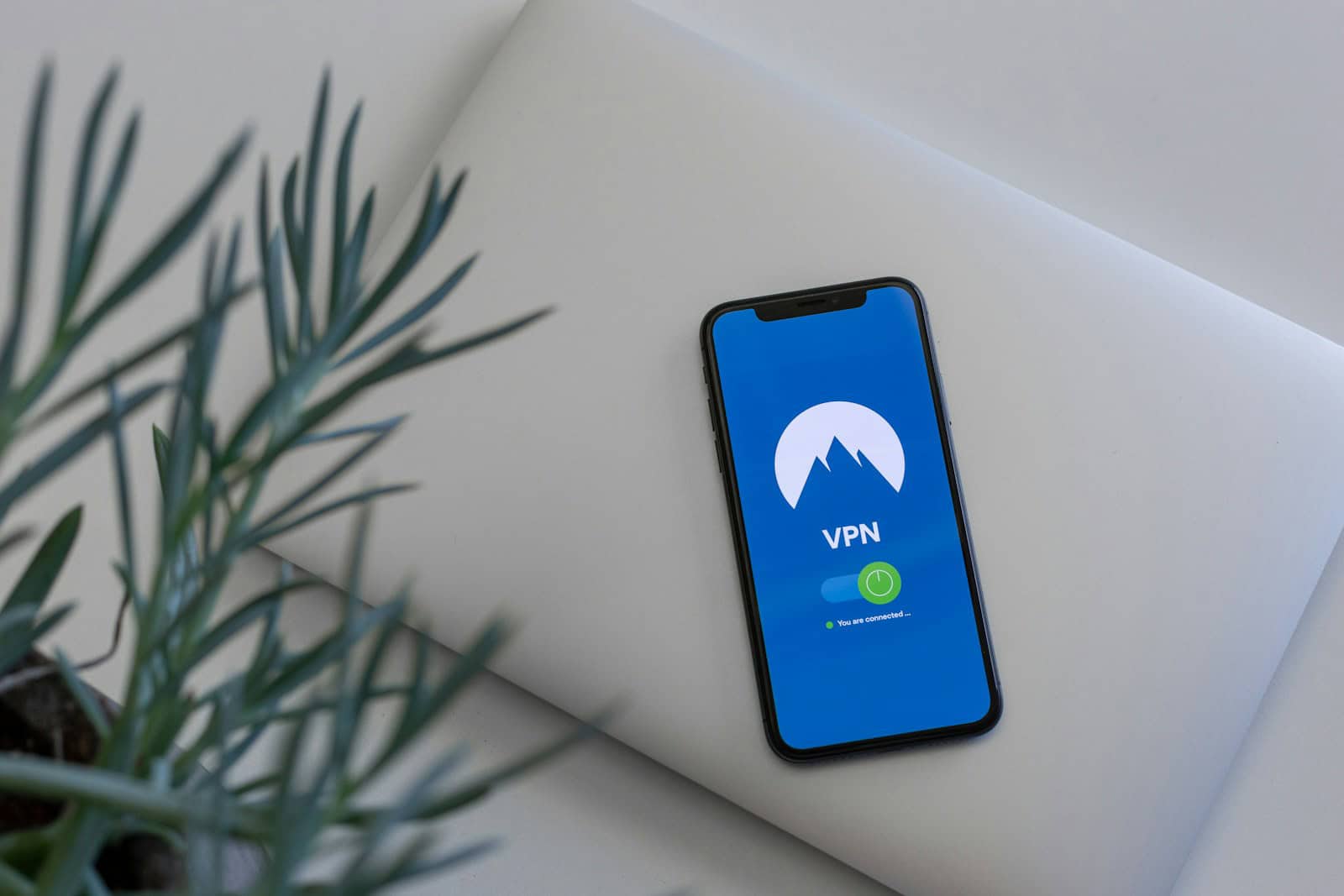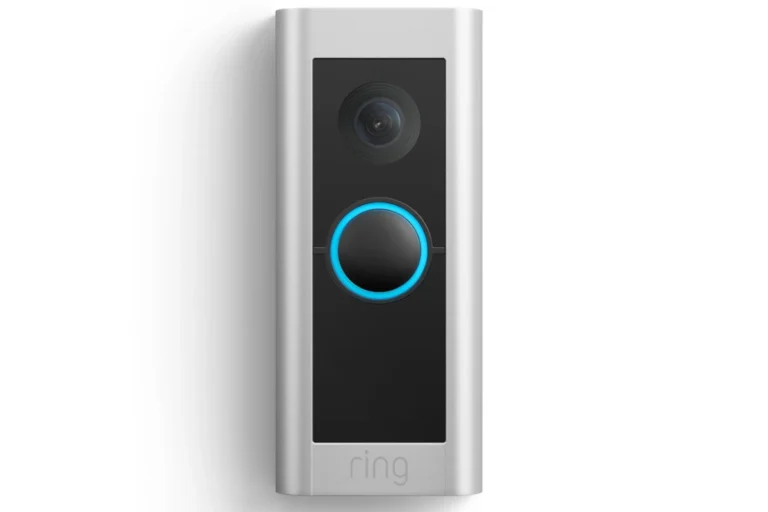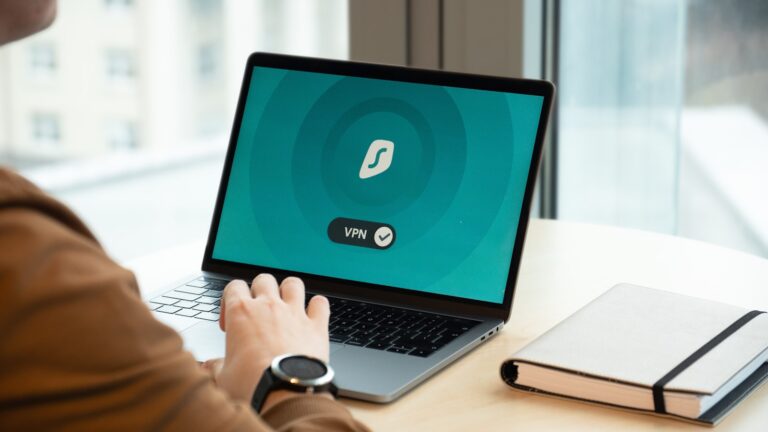
Wondering if you need a VPN? You’re not alone. In today’s digital world, where data breaches and online tracking have become common, many people are considering adding this extra layer of protection. A VPN is necessary if you value your privacy, use public Wi-Fi networks, want to prevent your Internet Service Provider from tracking your activities, or need to access geo-restricted content.
When you browse without a VPN, your online activities are visible to your ISP, websites you visit, and potentially hackers on shared networks. Your data is exposed in ways you might not realize, from your location to your browsing habits. A Virtual Private Network creates an encrypted tunnel that shields your information from prying eyes.
Not everyone needs a VPN all the time, but most people benefit from using one in certain situations. The risks of browsing unprotected on hotel Wi-Fi or accessing sensitive information without encryption are real. Even at home, a VPN can protect your privacy from your ISP’s data collection practices.
What a VPN Does
- Encrypts your connection: Prevents hackers, ISPs, or snoopers from seeing what you’re doing online.
- Masks your IP address: Hides your real location and makes tracking harder.
- Bypasses restrictions: Lets you access blocked websites or region-locked content.
- Adds privacy on public Wi-Fi: Protects your data in airports, cafés, and hotels.
(source: Security.org, Microsoft Azure)
✅ When You Probably Need a VPN
- You travel frequently and use public Wi-Fi.
- You want to stream content not available in your country.
- You live in a country with internet censorship or surveillance.
- You want to stop advertisers and ISPs from tracking you.
- You handle sensitive work data remotely.
⚠️ When a VPN May Not Be Necessary
- If you only browse casually at home on a secure network.
- If your main concern is malware or phishing → a VPN won’t protect you; you need antivirus and safe browsing habits.
- If you expect complete anonymity → a VPN helps, but it doesn’t make you invisible online.
(source: PCMag, Forbes Advisor)
🔑 Essential Security Considerations
- Choose a trustworthy VPN
- Look for a no-logs policy (they don’t store your browsing data).
- Check for independent audits confirming their claims.
- Understand the trade-offs
- VPNs may slow your connection slightly.
- Free VPNs often come with ads, data limits, or privacy risks.
- Use it as part of a bigger security plan
- Combine with strong passwords and two-factor authentication.
- Stay alert to phishing scams.
- Keep your devices updated.
📌 Bottom Line
A VPN isn’t a magic shield, but for many people it’s a valuable layer of protection—especially if you travel, use public Wi-Fi, or care about online privacy. Think of it as part of your overall digital security toolkit, not the only tool.
Key Takeaways
- VPNs provide essential protection when using public Wi-Fi and prevent your ISP from tracking your online activities.
- Quality VPNs require payment as free options often compromise your privacy by selling your data to advertisers.
- The right VPN balances security features, connection speed, and usability for your specific needs.
Understanding VPNs
VPNs create a secure connection between your device and the internet, hiding your online activities from prying eyes. They work by routing your internet traffic through encrypted tunnels to servers in different locations.
What Is a VPN?
A VPN (Virtual Private Network) is a service that protects your internet connection and privacy online. It creates a private network from a public internet connection, masking your IP address and making your online actions virtually untraceable.
When you use a VPN, your internet traffic is encrypted, which means the data traveling between your device and the VPN server becomes unreadable to anyone who might intercept it.
VPNs were originally designed for businesses to allow remote workers to securely access company networks. Today, they’ve become essential tools for everyday internet users concerned about privacy and security.
Think of a VPN as a secure tunnel through which all your internet data travels, protecting it from hackers, ISPs, and other third parties who might want to see what you’re doing online.
How VPNs Work
When you connect to a VPN, it creates an encrypted tunnel between your device and a server operated by the VPN provider. All your internet traffic passes through this tunnel before reaching the open internet.
Here’s what happens when you use a VPN:
- Connection Establishment: You connect to a VPN server using client software
- Authentication: The server verifies your credentials
- Encryption: Your data gets encrypted before leaving your device
- IP Masking: Your real IP address is hidden and replaced with the VPN server’s IP
Your internet service provider can only see that you’re connected to a VPN, but not what websites you visit. This prevents them from tracking your online activities or selling your browsing data.
The encryption process uses complex algorithms to scramble your data, making it unreadable without the proper decryption key.
Types of VPNs
There are several types of VPNs designed for different needs and use cases:
Remote Access VPNs
These allow individual users to connect to a private network from remote locations. They’re what most consumers use when they subscribe to VPN services like NordVPN or ExpressVPN.
Site-to-Site VPNs
Used primarily by businesses, these connect entire networks to each other. They’re common for companies with offices in multiple locations that need to share resources securely.
Mobile VPNs
Specifically designed for mobile devices, these maintain secure connections even when switching between networks or temporarily disconnecting.
Protocol-based VPNs
These use different security protocols like OpenVPN, WireGuard, or IKEv2, each with their own strengths in terms of speed, security, and compatibility with various devices.
The right type of VPN for you depends on your needs—whether you’re concerned about privacy on public Wi-Fi or want to access content from other countries.
Benefits of a VPN
VPNs offer several key advantages that can protect your online activities and expand your internet freedom. They create a secure tunnel for your data while giving you more control over how you appear online.
Enhanced Privacy and Anonymity
When you browse without a VPN, your Internet Service Provider (ISP) can see everything you do online. They track which websites you visit and how long you stay on them.
A quality VPN hides this activity from prying eyes. Your ISP will only see that you’re connected to a VPN server, not what sites you’re actually visiting.
VPNs also mask your real IP address. This prevents websites from knowing your physical location or building profiles about your browsing habits. Many services use your IP address to track you across websites and target you with ads.
Some VPNs even include built-in ad and tracker blocking features, giving you an extra layer of privacy protection without installing additional software.
Improved Security
VPNs encrypt your internet traffic, making it unreadable to anyone who might intercept it. This encryption works like a locked box that only you and the VPN server have keys to.
Even if someone captures your data, they can’t understand what’s inside. This is especially important for sensitive activities like online banking or accessing work documents remotely.
Some VPNs offer additional security features like protection against DDoS attacks. These attacks try to overwhelm your connection with fake traffic, but a good VPN can absorb these attempts.
While HTTPS provides some encryption, it only protects the connection between you and a specific website. A VPN encrypts all your traffic, including apps and services that might not use HTTPS.
Many VPNs also include malware protection that blocks connections to known harmful websites before they can damage your device.
Access to Geographically Restricted Content
Content restrictions are common across the internet. Streaming services like Netflix offer different shows and movies depending on your location due to licensing agreements.
A VPN lets you appear as if you’re browsing from almost anywhere in the world. By connecting to a server in Japan, for example, you can access Japanese-exclusive content.
This benefit extends beyond entertainment. You can:
- Access news sites that are blocked in your region
- Use services that aren’t available in your country
- Shop on websites that show different prices based on location
Many travelers use VPNs to access their home country’s content while abroad. This lets you keep watching your favorite shows even when you’re thousands of miles away.
Safe Use of Public Wi-Fi Networks
Public Wi-Fi networks in cafes, airports, and hotels are notoriously insecure. Hackers can easily set up fake networks or intercept data on legitimate ones.
When you connect to public Wi-Fi, a VPN creates a secure tunnel for your data, preventing anyone else on the network from seeing what you’re doing.
Without a VPN, sensitive information like passwords, credit card numbers, and personal messages could be captured by someone monitoring the network. This type of attack is common because the equipment to do it is inexpensive and easily available.
Even password-protected public networks aren’t completely safe. Other users on the same network might still be able to see your traffic. A VPN ensures that even if someone intercepts your data, they can’t read it.
Privacy Concerns
VPNs are often marketed as privacy shields, but their actual effectiveness depends on several factors. Understanding the real privacy landscape helps you make informed decisions about whether a VPN serves your needs.
Data Snooping and Surveillance
Government agencies and other entities can monitor internet traffic through various means. A VPN encrypts your connection, making it harder for these parties to see what websites you visit or what information you share online.
However, VPNs aren’t foolproof against determined surveillance. Governments are able to track people in many ways that don’t involve IP addresses. Some VPN providers may also comply with legal requests to share user data.
The quality of protection varies widely between VPN services. Some maintain strict no-logs policies, while others might collect and store your browsing data. Before choosing a VPN, carefully review their privacy policy and jurisdiction.
Advertisers Tracking
Advertisers use sophisticated methods to track your online behavior, including:
- Browser fingerprinting
- Cookies and supercookies
- Account logins across sites
- Device identifiers
A VPN only masks your IP address, which is just one piece of the tracking puzzle. Advertisers can still track you through many other methods even with a VPN active.
For comprehensive protection against advertisers, you need a multi-layered approach. This includes using tracker blockers, privacy-focused browsers, and being cautious about cookie acceptance. A VPN complements these tools but doesn’t replace them.
ISP Monitoring
Your Internet Service Provider (ISP) can see every website you visit and service you use. They may collect this data for various purposes, including:
- Selling your browsing habits to advertisers
- Throttling specific types of traffic
- Complying with government requests
A VPN creates an encrypted tunnel between your device and the VPN server, hiding your browsing activity from your ISP. For general internet browsing, this level of protection might be sufficient.
However, using a VPN shifts your trust from your ISP to the VPN provider. Some VPN providers have poor privacy practices, potentially logging your activity despite promises not to. Research VPN providers thoroughly before trusting them with your browsing history.
Security Features
VPNs offer several layers of protection that shield your online activities from prying eyes. These features work together to create a secure environment for your internet usage, though their implementation varies across different VPN providers.
Encryption Technologies
When you use a VPN, your data travels through an encrypted tunnel between your device and the VPN server. This encryption makes your information unreadable to anyone who might intercept it.
Most premium VPNs use AES-256 encryption, the same standard used by military and financial institutions. This virtually unbreakable protection scrambles your data into an unreadable format.
Some VPNs also offer additional encryption options:
- Perfect Forward Secrecy: Generates new encryption keys for each session
- ChaCha20: An alternative encryption method that works well on mobile devices
- Quantum-resistant encryption: Emerging technology designed to withstand future quantum computer attacks
The strength of encryption directly impacts your privacy protection level, making it one of the most crucial security features to consider when choosing a VPN.
Multi-Factor Authentication
Multi-factor authentication (MFA) adds an extra security layer to your VPN access, preventing unauthorized users from connecting even if they obtain your password.
When enabled, you’ll need to verify your identity through additional means beyond just entering a password. This typically includes:
- Something you know (password)
- Something you have (mobile device for verification codes)
- Something you are (biometric verification)
Many premium VPNs now offer MFA options like:
- Time-based one-time passwords (TOTP)
- SMS verification codes
- Authenticator apps integration
- Hardware security key support
This feature is particularly important if you’re using your VPN for sensitive activities or to protect from IP tracking. By enabling MFA, you significantly reduce the risk of account takeovers.
Security Protocols
VPN security protocols determine how your data is routed through the encrypted connection. Different protocols offer varying levels of security, speed, and compatibility.
The most common VPN protocols include:
OpenVPN: Open-source, highly secure, and widely used. It offers excellent balance between security and speed but may require additional configuration.
WireGuard: Newer protocol gaining popularity for its simplicity, speed, and strong encryption. Uses fewer lines of code, making it easier to audit for security vulnerabilities.
IKEv2/IPsec: Fast and stable, particularly good for mobile devices as it handles network changes well. Works excellently when switching between Wi-Fi and cellular data.
Some VPNs offer automatic protocol selection that chooses the best option based on your network conditions. This adds a layer of privacy protection while maintaining optimal performance for your specific situation.
Choosing the Right VPN
Selecting a suitable VPN requires careful consideration of provider reputation, features, and privacy practices. Your choice will significantly impact your online security and user experience.
Assessing VPN Providers
When evaluating VPN services, look for providers with strong security features and a proven track record. NordVPN and ExpressVPN consistently rank among top options due to their robust encryption standards and reliable performance.
Check for essential features like:
- Kill switch capability
- No-logs policy (verified by independent audits)
- Strong encryption (AES-256 is industry standard)
- Server locations that match your needs
The VPN’s speed impacts your browsing experience, so consider providers that offer the WireGuard protocol, which generally performs better than older options like OpenVPN.
User interface matters too. A complicated app might discourage you from using the VPN regularly, undermining your security efforts.
Looking Beyond Free VPN Options
Free VPNs often come with significant drawbacks that can compromise your privacy. Many free services fund their operations by collecting and selling your data—exactly what VPNs should protect.
Free options typically impose:
- Strict data caps
- Limited server selection
- Slower connection speeds
- Fewer security features
If budget is a concern, consider affordable premium options rather than free alternatives. Many quality providers offer plans for under $5 monthly with long-term subscriptions.
Several reputable companies offer money-back guarantees, allowing you to test their service risk-free. Mullvad stands out by accepting anonymous payments and offering a straightforward pricing model.
Importance of Privacy Policies
A VPN’s privacy policy reveals its true commitment to protecting your data. What the provider actually logs is more important than marketing claims about being “no-logs.”
When reviewing privacy policies, look for:
- Clear statements about what information is collected
- Data retention periods (shorter is better)
- Third-party sharing practices
- Location in privacy-friendly jurisdictions
VPNs based in countries with strong privacy laws or outside intelligence-sharing alliances (like the Five Eyes) may offer better protection. Some providers, including NordVPN, have undergone independent security audits to verify their privacy claims.
User reviews can provide insights into how companies respond when their policies are tested in real-world situations.
Potential Risks and Considerations
While VPNs offer privacy benefits, they come with several important drawbacks you should understand before committing to a service. Not all VPNs provide the same level of protection, and some might even compromise your security.
Malware and Bogus VPNs
Free VPNs often pose significant security risks. Many free services have been caught injecting malware or tracking software into users’ devices. These rogue apps may actually collect your data rather than protect it.
Some bogus VPN services create a false sense of security while actually monitoring your online activities. This is particularly dangerous when handling sensitive information like banking credentials or personal messages.
Always research a VPN provider thoroughly before installation. Look for independent security audits and clear privacy policies. Reputable services generally don’t advertise through pop-ups or spam emails that might lead you to the dark web or compromised sites.
Legal and Policy Implications
Using a VPN can sometimes violate terms of service for certain websites or streaming platforms. Some services actively block VPN connections to enforce regional content restrictions.
The FTC has warned consumers about misleading claims made by VPN providers regarding privacy protection. No service can guarantee complete anonymity online.
Corporate or educational networks might have policies against VPN usage. Using one could violate your employment agreement or student code of conduct.
Some countries have laws restricting or banning VPN use entirely. Before traveling internationally, check local regulations to avoid legal issues.
VPN Blockades and Countermeasures
Many streaming services and websites can detect and block VPN connections. This means you might pay for a VPN but still encounter access issues with services like Netflix or banking websites.
Performance problems are common with VPNs. Your internet connection may become significantly slower due to encryption overhead and routing through distant servers.
During peak usage times, VPN servers can become congested. This is especially true with free services that allocate fewer resources per user.
Some websites use advanced techniques to detect VPN usage regardless of which service you choose. Banking sites and government portals often implement these measures to prevent fraudulent access attempts.
Optimizing VPN Usage
Getting the most out of your VPN requires thoughtful setup and configuration to balance security with performance. The right adjustments can dramatically improve your experience while maintaining protection.
Maximizing Speed and Performance
VPN connections often slow down your Internet speeds due to encryption overhead. Choose server locations that are geographically closer to your physical location to reduce latency. Many premium VPNs offer specialized servers optimized for streaming or gaming.
Test different VPN protocols to find what works best for your needs. WireGuard typically offers the best balance of speed and security, while OpenVPN provides maximum compatibility.
Split tunneling is a valuable feature that lets you route only certain apps through your VPN. This reduces bandwidth usage and improves speed for apps that don’t need protection.
If you’re experiencing slow connections, try switching to less crowded servers. Many VPN apps display server load percentages to help you make informed choices.
Configuring for Network Requirements
When connecting to public Wi-Fi networks, enable your VPN’s auto-connect feature to ensure protection immediately upon joining. Configure your kill switch to prevent data leaks if your VPN connection drops unexpectedly.
For Bittorrent and P2P file sharing, use servers specifically designated for these activities. These specialized servers can handle high-bandwidth applications more efficiently.
Set up custom DNS servers through your VPN for better privacy and potentially faster website resolution. Some providers offer their own secure DNS services.
Consider port forwarding if you need to access devices on your home network remotely. However, be aware this may slightly reduce your privacy protection.
For mobile devices, configure battery optimization exceptions for your VPN app to prevent it from being closed in the background.
Additional Privacy Tools
Your VPN is just one part of a comprehensive privacy strategy. Pair it with browser extensions like Privacy Badger to block trackers and enhance your online anonymity.
Use a secure browser alongside your VPN for maximum protection. Firefox with privacy-enhancing add-ons or Brave browser can complement your VPN security.
Consider a password manager to secure your online accounts, including your monthly subscription to premium VPN services. Most quality VPNs cost between $3-12 per month.
Enable two-factor authentication on your VPN account to prevent unauthorized access. This adds an important second layer of security beyond your password.
Review your VPN’s logging policy regularly. The best providers maintain strict no-logs policies that have been independently audited by security firms.
Advanced VPN Concepts
For users seeking higher security levels, VPNs offer several sophisticated features beyond basic connections. These technologies can greatly enhance your privacy protection while allowing for more customized online experiences.
Understanding Multi-Hop Connections
Multi-hop connections (also called double VPN or cascading) route your traffic through two or more VPN servers instead of just one. This creates multiple layers of encryption, making it extremely difficult for anyone to track your activity.
When you use a standard VPN, your traffic goes from your device to the VPN server, then to the internet. With multi-hop, it travels through additional servers before reaching its destination.
Mullvad VPN and IVPN are well-known providers offering this feature. Mullvad lets you create custom multi-hop routes between their servers.
The main benefits include:
- Enhanced anonymity – your real IP address is hidden behind multiple layers
- Protection from compromised servers – if one server is compromised, your data remains secure
- Improved protection against sophisticated surveillance
The trade-off is typically slower speeds due to the additional routing and encryption processes.
The TOR Network and VPNs
The Onion Router (TOR) network is a privacy system that routes your traffic through multiple volunteer-operated nodes, encrypting it at each step. Combining TOR with a VPN creates an extremely robust privacy solution.
You can use these technologies together in two configurations:
- VPN → TOR: Connect to your VPN first, then access TOR
- TOR → VPN: Connect to TOR first, then to your VPN
The first approach helps hide your TOR usage from your ISP. The second better protects you from potentially malicious TOR exit nodes.
Mozilla VPN has explored integration with the TOR network to provide enhanced privacy options for users who need maximum anonymity.
This combination is particularly useful for journalists, political activists, or anyone requiring exceptional privacy guarantees. Remember that using TOR significantly reduces your connection speed.
Customizing VPN for Specific Needs
Modern VPNs offer various customization options to match specific privacy requirements and usage scenarios.
Split tunneling allows you to route only certain apps or websites through the VPN while others use your regular connection. This feature helps:
- Maintain faster speeds for trusted services
- Access local network devices while still protecting sensitive traffic
- Reduce bandwidth usage on your VPN connection
Port forwarding enables incoming connections to reach your device through the VPN, useful for hosting servers or using P2P applications effectively.
Many VPNs now offer specialized servers optimized for particular activities:
- Streaming-optimized servers for better video performance
- P2P-friendly servers for torrenting
- Static IP servers for services that require consistent identification
You should also check if your VPN offers customizable encryption protocols like OpenVPN, WireGuard, or IKEv2, allowing you to balance security and speed based on your needs.
Frequently Asked Questions
VPNs offer several benefits and potential drawbacks that users should consider before making a decision. Different situations may call for varying levels of privacy protection.
Is a VPN necessary for home internet use?
A VPN isn’t strictly necessary for home internet use, but it can provide valuable privacy benefits. Your internet service provider can track your online activities without a VPN.
If you’re particularly concerned about privacy or regularly handle sensitive information, a VPN adds an extra layer of security. For casual browsing on a secure home network, the benefits may be less pronounced than when using public Wi-Fi.
What are the advantages of using a VPN on my phone?
Using a VPN on your phone can protect your data when connected to public Wi-Fi networks at cafes, airports, or hotels. These networks are often unsecured, making your information vulnerable.
A VPN also helps bypass geographic restrictions, allowing you to access content that might be limited in your current location. This is useful when traveling or accessing region-specific services.
Mobile VPNs can also prevent bandwidth throttling from your carrier and add protection against targeted mobile ads.
When should one consider using a VPN service?
You should consider using a VPN when connecting to public Wi-Fi networks to protect your data from potential hackers. This is especially important when accessing banking websites or entering personal information.
VPNs are valuable when traveling to countries with internet restrictions or censorship. They can help you maintain access to your regular websites and services.
If you want to prevent your ISP from monitoring your browsing habits or selling your data, a VPN encrypts your traffic and masks these activities.
Are there any drawbacks to using a VPN?
VPNs typically reduce your internet speed due to the encryption process and routing through external servers. This slowdown varies depending on the VPN provider and server location.
Some websites and services block VPN access, which can be frustrating. Netflix, banking applications, and certain government websites often have VPN detection systems.
A VPN doesn’t provide complete protection against malware or viruses. You’ll still need antivirus software and good cybersecurity practices.
Is investing in a VPN worthwhile for the average user?
For most average users, a VPN can be worthwhile if you regularly use public Wi-Fi or have specific privacy concerns. The cost typically ranges from $3-12 per month, with discounts for longer subscriptions.
Free VPNs exist but often come with limitations like data caps, fewer server options, or privacy concerns. Many free services may log and sell your data to advertisers.
Consider your online activities before investing—if you primarily browse from home and don’t access sensitive information, the benefits may be less significant.
What risks might I face if I choose not to use a VPN?
Without a VPN, your internet service provider can see and potentially log your browsing history. This information could be sold to advertisers or provided to government agencies.
Public Wi-Fi usage without VPN protection leaves you vulnerable to “man-in-the-middle” attacks where hackers intercept data between your device and the websites you visit.
Your real IP address is visible to websites and services you visit, potentially revealing your approximate location and enabling tracking across different sites.






